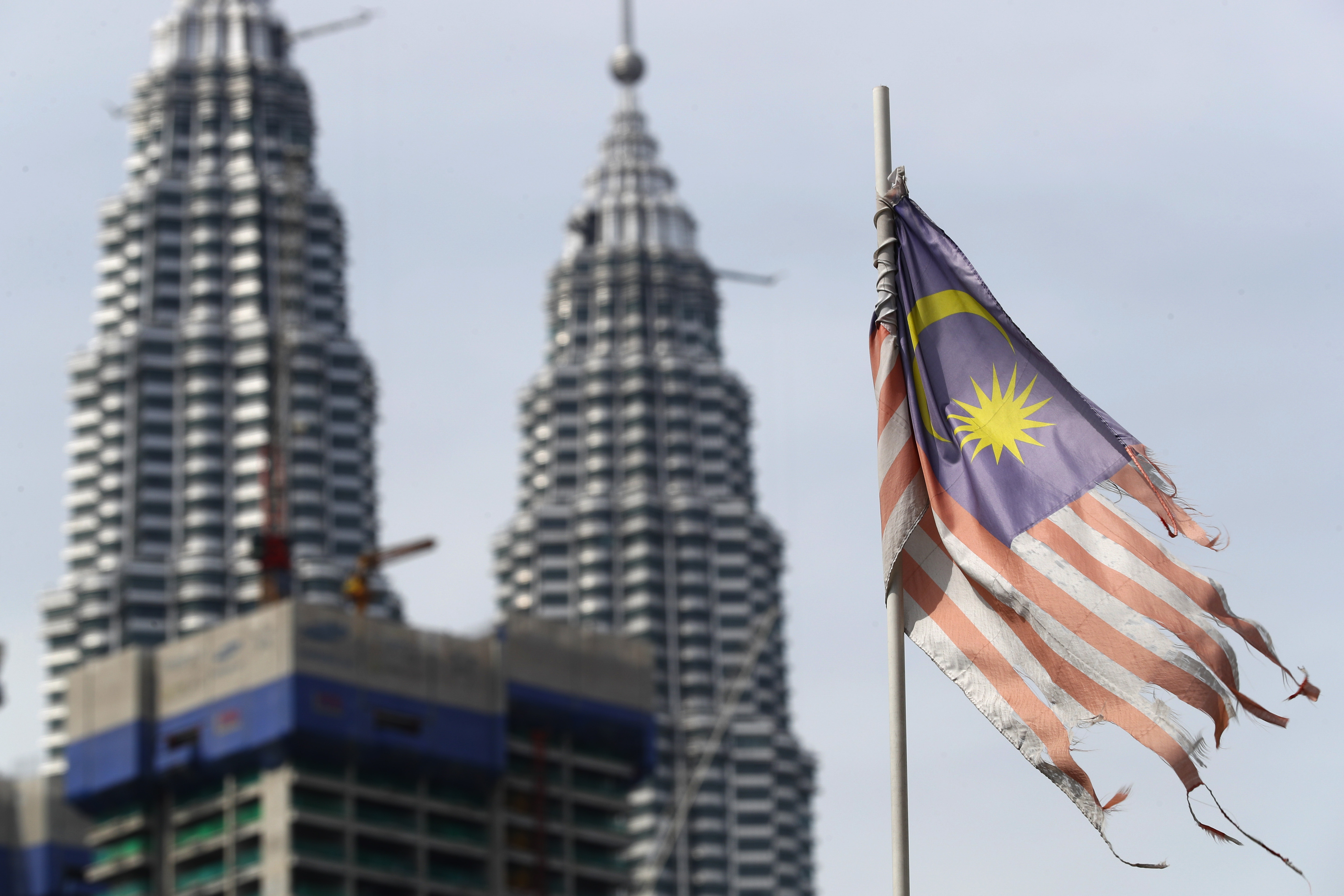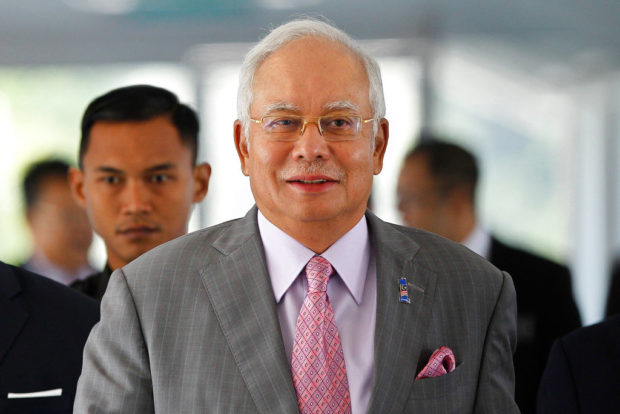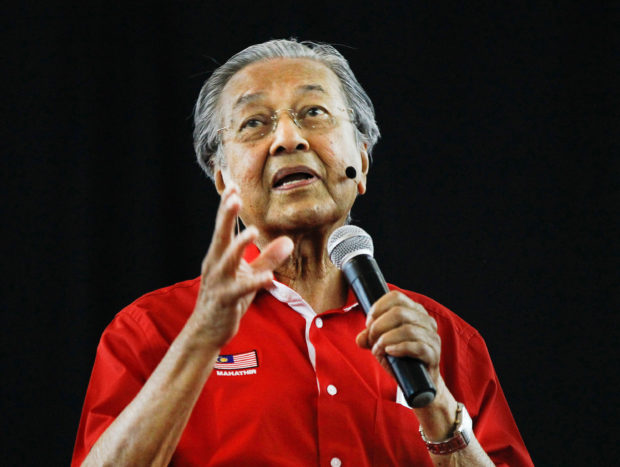Malaysia vote that could decide Najib’s fate set for May 9

A battered Malaysian national flag flies in front of the Petronas Towers in Kuala Lumpur, Malaysia on Tuesday, April 10, 2018. Malaysian general elections that could determine scandal-plagued Prime Minister Najib Razak’s political survival were set for May 9, with analysts saying the workday polls may reduce voter turnout. (AP Photo/Vincent Thian)
KUALA LUMPUR, Malaysia — Elections that could determine scandal-plagued Malaysian Prime Minister Najib Razak’s political fate were set Tuesday for May 9, an unusual workday vote with a shorter campaign period than in the last national polls.
Najib, who is seeking a third term in office, is under pressure to improve his National Front coalition’s performance after support eroded in the last two elections.
The combination of the election being held on a Wednesday and the shorter campaign is seen as possibly hurting voter turnout. Analysts say lower turnout could hurt the opposition led by former strongman Mahathir Mohamad, who was Asia’s longest-serving leader when he retired in 2003 after 22 years.
Mahathir, who now leads a four-party opposition alliance, said the weekday vote was undemocratic because urban voters and about half a million Malaysians working in Singapore would find it difficult to return to their hometowns to vote. Other opposition lawmakers said it showed Najib was worried about the number of urban voters who want change.
Past Malaysian elections were mostly held on weekends but weekday votes are not unprecedented. National polls in 1995 and 1999 under Mahathir were held on Mondays. Government officials said the midweek vote would be fair because some states have Friday and Saturday as their weekends.

Malaysia’s Prime Minister Najib Razak. AP
The Election Commission set an 11-day campaign period, shorter than the 15 days for the 2013 polls.
It said 14.94 million people are eligible to vote, including 1.7 million new voters.
Mahathir, who has said a high voter turnout is needed for an opposition victory, was undeterred, saying he was confident his alliance can win. In 2013, when the opposition won the popular vote for the first time, a record 85 percent of eligible voters cast ballots.
Najib, 64, has been dogged by a massive corruption scandal involving the 1MDB state investment fund, which is under investigation in the U.S. and other countries for alleged cross-border embezzlement and money laundering.
A strong victory is pivotal for Najib ahead of year-end party elections in his United Malays National Organization, or UMNO, the linchpin of the coalition that has ruled Malaysia since independence from Britain in 1957.
“I would consider this election the ultimate test of survival for Najib,” said Rashaad Ali, research analyst with the S. Rajaratnam School of International Studies in Singapore. “If Najib fails to deliver a strong result, voices of dissent within UMNO will surely grow louder, making his position as leader untenable. If he does well in the election, it would be the biggest consolidation of his position.”
Najib faces an unprecedented challenge from Mahathir, who returned to politics two years ago amid anger over the scandal involving 1MDB, which was set up and previously led by Najib and has accumulated billions in debt.

Former Malaysian Prime Minister Mahathir Mohamad. AP
Opposition lawmakers say the 1MDB scandal has turned the country into a kleptocracy and that re-electing the ruling coalition would destroy Malaysia. The U.S. Justice Department says at least $4.5 billion was stolen from 1MDB by associates of Najib and is working to seize $1.7 billion allegedly taken from the fund to buy assets in the U.S.
Najib has denied any wrongdoing and strengthened his grip on power by firing critics and muzzling the media. Just days before he called elections, Parliament also approved redrawn electoral boundaries criticized as skewed in favor of the National Front and a ban on fake news that critics say is aimed at prohibiting discussions of the 1MDB scandal.
Analysts said the new electoral map could help Najib win back a supermajority in Parliament.
On Saturday, Najib unveiled a lavish election manifesto with cash benefits for rural Malays angered by the rising cost of living. His campaign slogan, “Make my country great with BN,” the Malay acronym for the National Front, has similarities with U.S. President Donald Trump’s 2016 election motto, “Make America great again.”
The National Front lost its two-thirds majority in Parliament in 2008. In 2013, it lost the popular vote to the opposition for the first time, its worst-ever electoral showing.